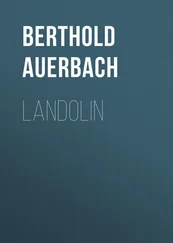Berthold Auerbach - On the Heights - A Novel
Здесь есть возможность читать онлайн «Berthold Auerbach - On the Heights - A Novel» — ознакомительный отрывок электронной книги совершенно бесплатно, а после прочтения отрывка купить полную версию. В некоторых случаях можно слушать аудио, скачать через торрент в формате fb2 и присутствует краткое содержание. ISBN: , Жанр: foreign_antique, foreign_prose, на английском языке. Описание произведения, (предисловие) а так же отзывы посетителей доступны на портале библиотеки ЛибКат.
- Название:On the Heights: A Novel
- Автор:
- Жанр:
- Год:неизвестен
- ISBN:http://www.gutenberg.org/ebooks/33294
- Рейтинг книги:4 / 5. Голосов: 1
-
Избранное:Добавить в избранное
- Отзывы:
-
Ваша оценка:
- 80
- 1
- 2
- 3
- 4
- 5
On the Heights: A Novel: краткое содержание, описание и аннотация
Предлагаем к чтению аннотацию, описание, краткое содержание или предисловие (зависит от того, что написал сам автор книги «On the Heights: A Novel»). Если вы не нашли необходимую информацию о книге — напишите в комментариях, мы постараемся отыскать её.
On the Heights: A Novel — читать онлайн ознакомительный отрывок
Ниже представлен текст книги, разбитый по страницам. Система сохранения места последней прочитанной страницы, позволяет с удобством читать онлайн бесплатно книгу «On the Heights: A Novel», без необходимости каждый раз заново искать на чём Вы остановились. Поставьте закладку, и сможете в любой момент перейти на страницу, на которой закончили чтение.
Интервал:
Закладка:
It was a messenger with a letter for Irma. She recognized the handwriting of her friend Emma, and hurriedly opening the letter, read as follows:
" Irma : I cannot come to thee. I have said farewell to the world. Three weeks ago to-day, my Albrecht lost his life through the bite of a mad dog. My life for this world is also at an end. I humbly submit to the inscrutable will of the Almighty. I have vowed to take the veil. I am here now, and shall never again leave this spot. Come, as soon as thou canst, to thy
"Sister Euphrosyne, "In the convent of Frauenwörth."Irma handed the letter to her father to read.
"And so the bite of a mad dog has destroyed two human lives. Who will explain this?" exclaimed Irma.
"In that respect, religion is just as impotent as we are. Like reason, she commands us to obey nature's law."
The messenger waited, and Irma went off to write an answer in which she promised to come.
Meanwhile, Eberhard sat alone. He had confided the story of his life to his child-and what would it avail? How often had he realized that no teaching, be it ever so noble, can change the human mind. Life, observation and experience can alone produce conviction. The weak point of dogmatism is that it attempts to teach that which can only be learned from life itself. His children had not shared in his life, and it was now of little avail to recount it to them, in all its details, or to explain the motives that directed it. There was enough of contradiction implied in the fact that the father was obliged to tell what his life had been.
In his own mind, Eberhard acknowledged that his own conduct had borne its legitimate results. He had no real claim to filial affection; at all events, not to the degree in which he craved it, for he had lived for himself alone. When Irma returned and asked permission to visit her friend Emma, he nodded assent. He had boasted that nothing could interrupt him. He might use the rule for himself, but not for others. He had told his child the story of his life-who knew but what this untoward interruption would efface it all from her memory?
CHAPTER XI
Seated in the open court carriage, Irma rode over hill and dale. She lay back on the cushions; the waiting-maid and the lackey sat on the back seat.
Emma's sad and sudden message had almost paralyzed her; but, now that she was in the carriage, her strength returned. Travel and change of air always exerted a magic influence over her.
The echo of her father's story followed her during a great part of the journey. She had listened with great interest, although the story itself had made but a faint impression upon her. An inner voice told her: These matters are not so serious or important as he takes them. It is his peculiar temperament that causes them to affect his course in life. It would not be so with another. It was enough that she was able to do justice to his eccentricity. He could hardly expect it to exert any decided influence upon her. Emma's fate was horrible, maddening; but her father's was not. Much of his life-trouble was mere self-torment. He spoke of repose, and yet knew it not.
With all Irma's affection for her father, she had really so little in common with him, that the painful expression that played about his mouth, while he told her his story, simply served to remind her of the Laocoön.
Irma shook her head quite petulantly.
What a chaos is the world!
A mad dog destroys a life and, here and there, solitary beings are tormenting themselves to death. Every one is conscious of some fault or weakness; all seek the unattainable and, in unending attempts and trials, life is spent. In the midst of this chaos, a single figure appears. It is full, beautiful, great, sure of life and, in truth, controls life. Irma turned back as if to say: "Alas! it is not you, father, although you could and ought to be the one. The king alone is the one free being on the pinnacle of life."
A smile played about her lips while she thought of him. She looked up at the blue heavens and, forgetting whither she was going, felt as if gentle arms were carrying her away over hill and dale.
An eagle was winging its flight far above the mountain tops. Irma's eyes followed it for a long while. She ordered the driver to stop the carriage, and the servant alighted in order to receive her ladyship's order. She motioned him to mount the box again, and, though all the comforts wealth affords were hers, stopped in the midst of wild nature to watch the eagle hovering in the air, until it at last disappeared in the clouds.
"If one must die, I'd like to die thus," said an inner voice, "fly into heaven and be no more."
They drove on. For the rest of the journey, Irma did not utter a word. It was toward evening when the lackey said: "We've reached the place."
The road descended toward the lake, by the shore of which the carriage stopped. The convent was on an island in the center of the lake, and the sounds of the curfew bells filled the air. The sun was still visible over the mountain tops, its rays were almost horizontal, and the dancing, sparkling waves looked like so many lights swimming to and fro. The surface of the lake was rapidly assuming a golden hue.
At the sound of the evening bells, the lackey and the postilion lifted their hats and the waiting-maid folded her hands. Irma also folded her hands, but did not pray. She thought to herself: The sound of the bells is pleasant enough, if one can listen to them from without, and then return to the happy world; but to those who are within the convent, it is a daily death-knell; for life such as theirs, is death.
Irma's mood was not in sympathy with that of her friend, and she did her best to feel as befitted the occasion.
While they were getting the boat ready, she overheard the lackey speaking with another servant whose face she remembered to have seen at court.
She heard the court lackey saying:
"My master's been here for some days and has been waiting for something; I don't know what."
Irma would have liked to ask with whom he had come, but a sudden fear overpowered her and she was unable to speak a word.
Accompanied by the waiting-maid, she stepped into the boat. An old boatman and his daughter rowed the rudderless skiff. The waters of the lake were deep and dark. The sun was setting, and the shadows of the western mountains were reflected in dark outlines on the hills along the shore. The fresh-fallen snow lay on the glaciers, whose white crests contrasted sharply with the wooded hills of the foreground and the clear blue sky. Below, all was as silent and dusky as though they were sailing into the realm of shadows.
"Is this your daughter?" asked Irma, addressing the old boatman.
He nodded a glad assent, delighted to find her conversant with the dialect of that portion of the country. Her intercourse with Walpurga had kept her in practice.
"Yes," replied the boatman, "and she'd like to go into service with some good family. She can sew well and-"
"Remain with your father; that's the best thing you can do," said Irma to the girl.
They rowed on in silence. "How deep is the lake here?" inquired Irma.
"Sixty fathoms, at least." Irma's hand played with the water, and she was pleased with the thought that human beings could so easily and boldly move along over a threatening, watery grave. She leaned a little way over the side of the boat, and the boatman called out:
"Take care, miss!"
"I can swim," replied Irma, splashing the waves.
"That's all very well," said the old man, laughing. "They can all swim until they have to, and then all's over; and if they happen to have clothes hanging to them, mighty few can swim."
"You're right there. Our gay frippery would drag us down."
The old man did not understand her and made no reply.
Читать дальшеИнтервал:
Закладка:
Похожие книги на «On the Heights: A Novel»
Представляем Вашему вниманию похожие книги на «On the Heights: A Novel» списком для выбора. Мы отобрали схожую по названию и смыслу литературу в надежде предоставить читателям больше вариантов отыскать новые, интересные, ещё непрочитанные произведения.
Обсуждение, отзывы о книге «On the Heights: A Novel» и просто собственные мнения читателей. Оставьте ваши комментарии, напишите, что Вы думаете о произведении, его смысле или главных героях. Укажите что конкретно понравилось, а что нет, и почему Вы так считаете.












